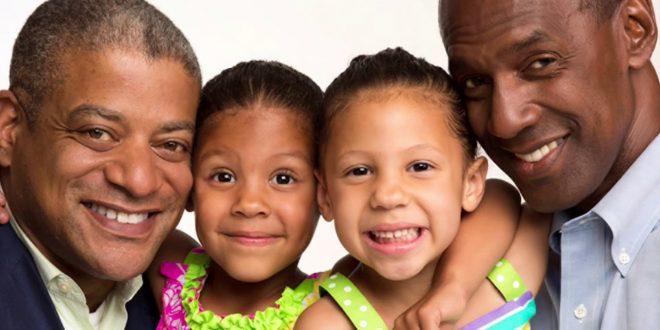Adopting by LGBTI (lesbian, gay, bisexual, transgender and intersex) persons may be done by a single person, couples of the same sex, or by a couple’s partner when the other has a biological child (by step-parent). Fourteen countries have legalized adoptions to couples of the same sex. The main concerns of people that oppose LGBTI adoption are if those couples can also have good parenting skills. Legalization takes place often on judicial opinions. Supporters say many children need homes and claim their ability to parent has no relevance to their sexual orientation. Opposition suggest the alleged drug use,
Suicides, domestic violence and promiscuity among homosexuals could affect the child or cause maladjustment with absence of both role models, male and female. Both sides agree the child’s welfare should dictate the policy.
Many organizations have given statements defending the adoption by same-sex partners. The American Psychological Association (APA) cites psychological health of gays and lesbians could be harmed, while their parenting doesn’t cause the children harm. The (AMA) American Medical Association and (ASA) American Sociology Association hold similar positions for same-sex couples adopting.
In Florida in 2008, a statute that forbids gay adoptions was struck down. The judge felt equal rights of protection had been violated, and that prohibiting adoption by gay parents was not rational since they were allowed to be foster parents. The decision was appealed by the state and the lower court’s decision was upheld. In 2010, the governor announced that the ban on LGBTI adoptions will be lifted, allowing their adoptions legal in Florida. In November, 2008, voters in Arkansas approved the measure of banning anyone from adopting children or be foster parents if they “co-habitate outside a valid marriage”. It was mainly written targeting gay people because same-sex marriages was prohibited, making it impossible to adopt. However, single lesbians and gay men could adopt.
 Lesbian, Gay, Bisexual, Transgender & Intersex News Lesbian News, Gay News, Bisexual News, Transgender News, Intersex News, LGBTI News
Lesbian, Gay, Bisexual, Transgender & Intersex News Lesbian News, Gay News, Bisexual News, Transgender News, Intersex News, LGBTI News




